Publications
Articles, publications, books, tools and multimedia features from the U.S. Institute of Peace provide the latest news, analysis, research findings, practitioner guides and reports, all related to the conflict zones and issues that are at the center of the Institute’s work to prevent and reduce violent conflict.
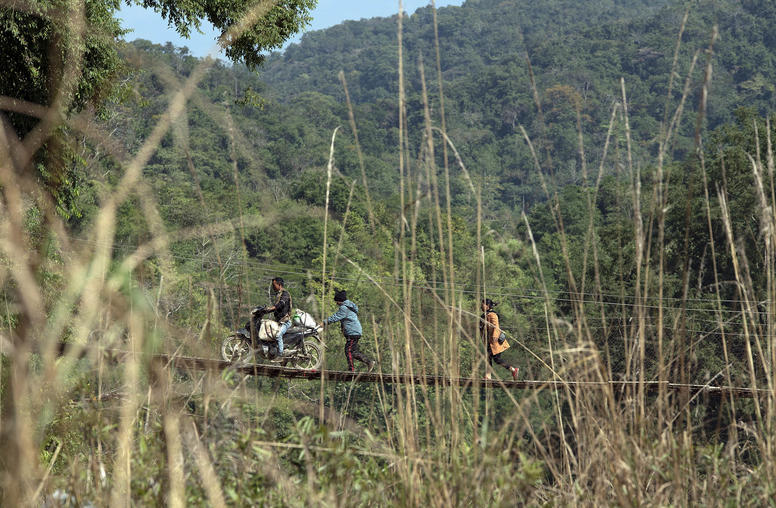
Time is Running Out for India’s Balancing Act on the Myanmar Border
India has had a simmering crisis on its northeastern border since the Myanmar military’s February 2021 coup d’état. Over 50,000 civilians have fled across the border from Myanmar’s Chin State and Sagaing Region into India’s northeast. New Delhi has maintained a delicate balancing act, allowing refugees into the country but refraining from political pressure on the junta and its State Administrative Council (SAC). However, as the situation in Myanmar continues to worsen, India will need to rethink its position before the fallout seriously threatens its interests.
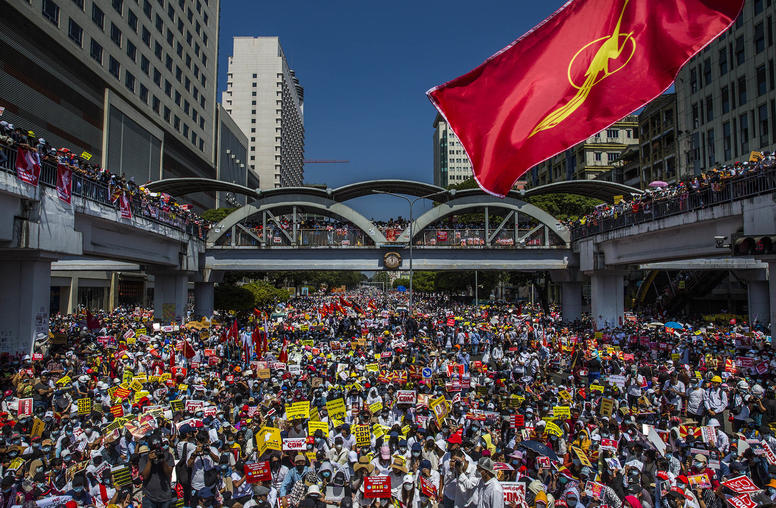
Like Ukraine, Myanmar Deserves International Aid
Over decades of brutal military rule, Myanmar’s generals have sometimes shifted tactics but relied on one consistent strategy to ensure their grip on power — fomenting divisions within the population and fueling intercommunal violence. That repeated ploy finally failed in the upheaval that followed the 2021 coup. Today, the country has embraced an historic unity that brings together virtually every ethnic and political strand to oppose the ruling junta. Like Ukrainians, Myanmar's people are courageous, spirited and united, and willing to make great sacrifice in their fight for democracy.
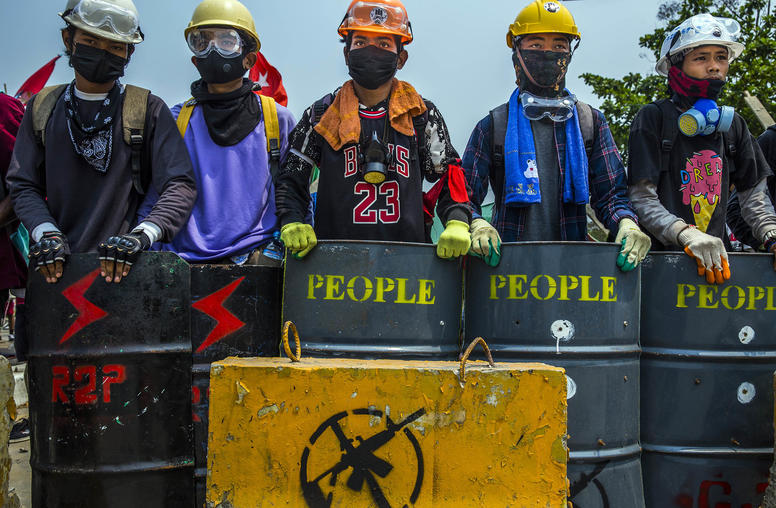
In Myanmar’s New Security Institutions, Power Should Be Community-Owned
Even as the civil war rages on, many pro-democracy groups in Myanmar have begun building their own governance and security institutions. As these new structures emerge, it’s important that they do not repeat the mistakes of the past.
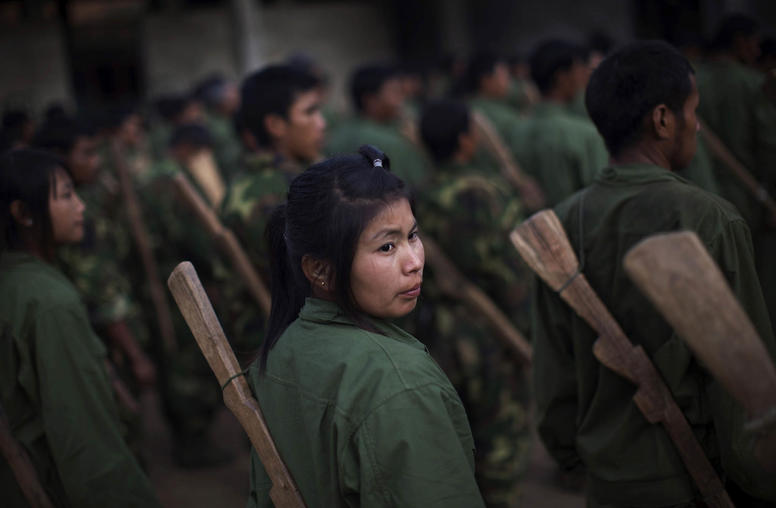
Amid the Fight for Myanmar, Federalism Rises from the Grass Roots
On April 11, Myanmar’s ruthless military dictatorship showed just how much it fears the emergence of local governments that have slipped beyond its control. As about 200 villagers in the Sagaing region celebrated a new administrative center after junta-controlled officials had fled, fighter jets swooped in and dropped munitions on the crowd. When people sought to retrieve the dead and injured, an Mi35 helicopter arrived and circled, strafing the scene. At least 170 people, including women and children, died in the attack.
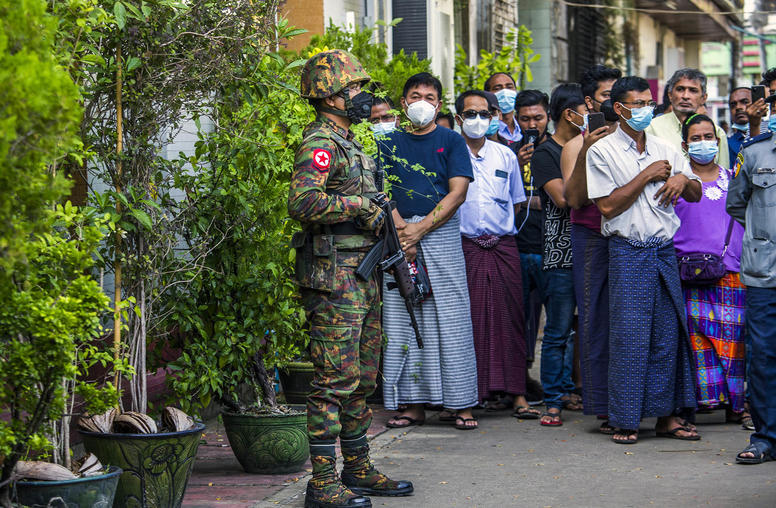
Myanmar’s Military Is Smaller Than Commonly Thought — and Shrinking Fast
International actors seeking to end Myanmar’s civil war make an assumption that on its face appears reasonable: They need to focus on the coup regime for any resolution of the conflict, the thinking goes, because the military is simply too big to fail. But is it? The Sit-Tat, as the armed forces are known, is an opaque institution, shrouded in secrecy, with the question of its actual size a major mystery. As explained below, analysts who lack reliable evidence tend to make estimates of military manpower that are far too high.
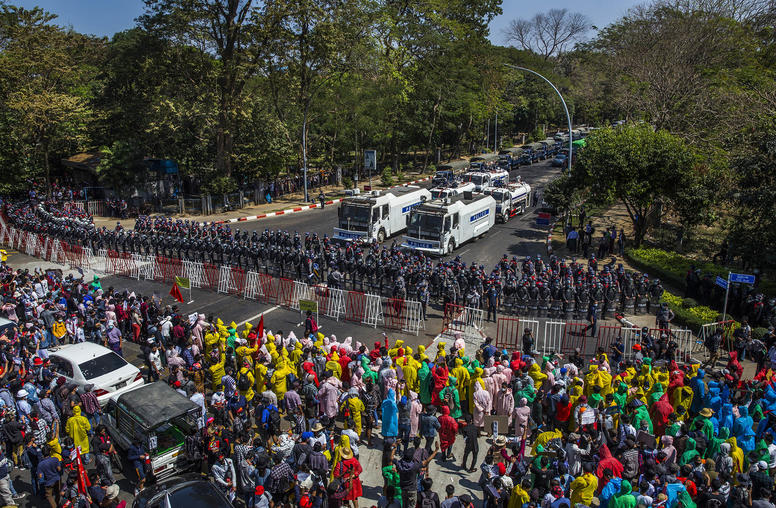
Misinformation, Hate Speech and Ethno-Religious Tensions in Myanmar
In Myanmar, interethnic tensions have improved in the post-coup era as more and more resistance leaders join the call to fight the junta. This shared opposition to military rule has left many people hopeful for the prospect of broader national cohesion in a country that has been beset by various civil and ethnic conflicts for decades. But this moment of national cohesion can also obscure the complex histories and intercommunal grievances that remain unresolved — and a recent massacre in Southern Shan State demonstrates that the military’s violence still has the power to sow discord among a fragmented resistance movement.
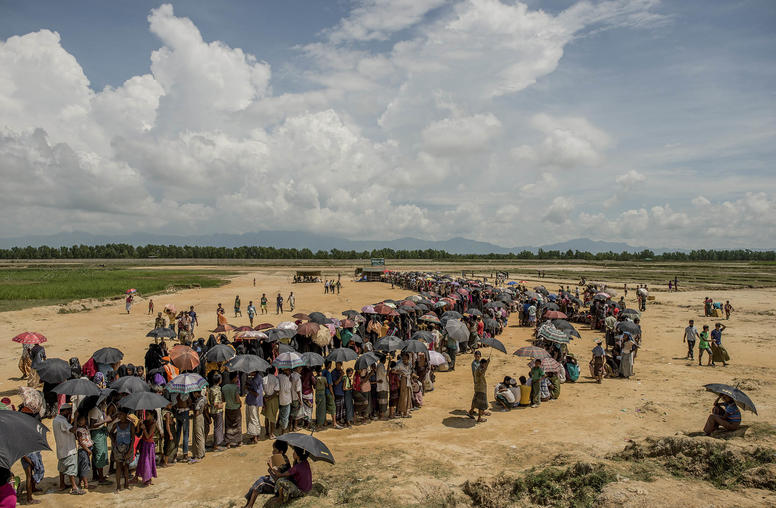
Conflict Dynamics between Bangladeshi Host Communities and Rohingya Refugees
In August 2017, several hundred thousand Rohingya fled violence and persecution in Myanmar, seeking refuge in Cox’s Bazar in neighboring Bangladesh. In the years since, the Bangladeshi government has provided a safe haven for the refugees. Yet there are signs of increasing discontent in the Bangladeshi host community over insecurity, economic costs, and other negative effects of the refugee camps. As this report explains, addressing this potentially combustible situation will be vital to ensuring a sustainable humanitarian effort in Cox’s Bazar.
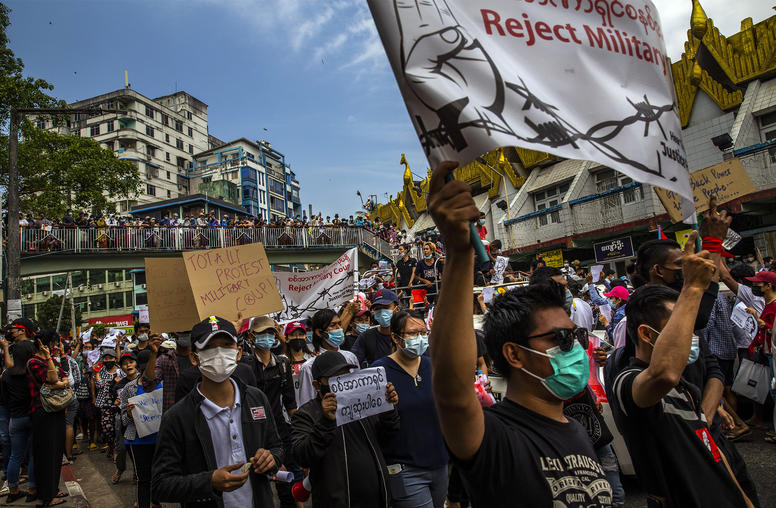
Support for Myanmar’s Junta Only Prolongs the Country’s Conflict
Myanmar’s coup regime, whose principal strategy for dealing with the country’s resistance movement is blunt, unrelenting brutality, benefits from three misconceptions prevalent in the international community: First, that consolidation of the military’s power is essentially inevitable; second, that absence of the generals’ regime would lead to a power vacuum and failed state; and third, that long-term military control is preferable to the status quo and would lead to stability.
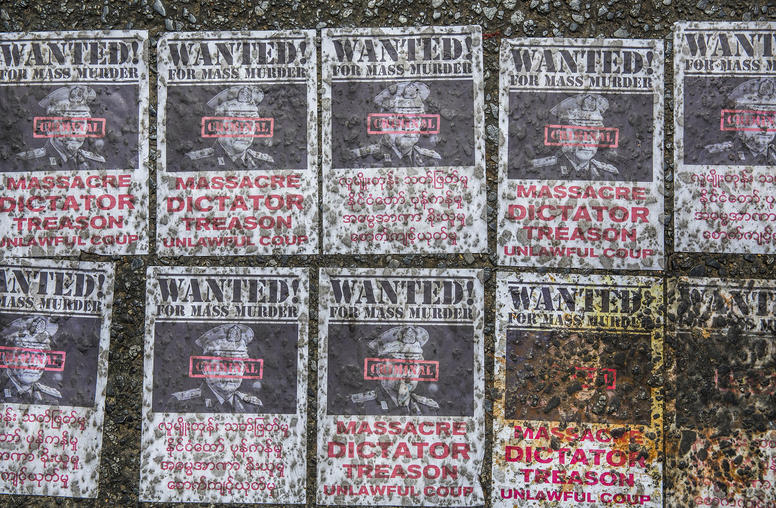
Myanmar’s Criminal Junta Will Do Anything to Consolidate Power
After months of fanfare about holding elections in August 2023, Myanmar’s junta chief, Gen. Min Aung Hlaing, suddenly changed course. On February 1, he extended the junta’s illegitimate rule by another six months acknowledging that the military does not control enough of the country to administer an election. This development represents a setback for those in the international community who had naively believed that sham elections would pave the way to a stable Myanmar.
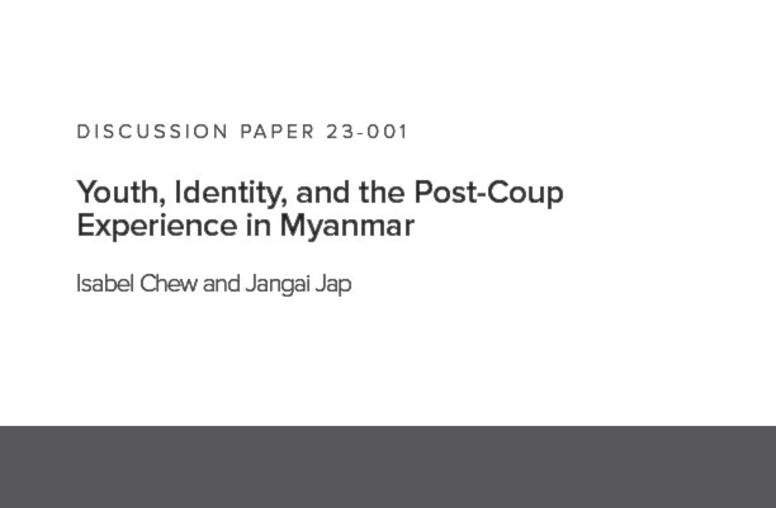
Youth, Identity, and the Post-Coup Experience in Myanmar
One of the biggest challenges facing Myanmar today is its lack of a cohesive national identity. Its colonial legacy and half a century of authoritarian rule has reified group divisions and hardened societal cleavages, leading to negative, and sometimes outright hostile, relations between different groups. Against this background, the authors discuss how the Myanmar youth perceive their social identity, in particular national identity, and how they conceptualize notions of citizenship within the Myanmar context, as well as the implications of the coup and the post-coup experience for the youth’s perceptions of social identity and interethnic relations in Myanmar.